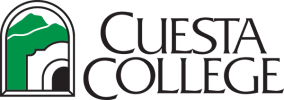
Program Summary
TECHNICAL THEATER - Certificate of Achievement
2023 - 2024, 2024 - 2025
Technical Theater is a specialized program that teaches the fundamentals of producing the visual and aural elements of both live and recorded programs. Students learn stage carpentry and metal fabrication, scenic art, scenic design, property design and fabrication, electrics, lighting design, costume construction and design, and management. This program is hands on and offers students opportunities to work on actual productions and to be a critical member of the production team.
Career Opportunities
Students with technical theater training can find employment in a wide variety of positions in and outside of the entertainment field. A few examples in the entertainment field include:
Load in and run crew at performance venues, stage electricians, lighting designers, scenic carpenters, set designers, scenic artists, technical direction, special effects artist, costumer, costume designer, sound engineer, sound designer, stage management.
Examples outside of entertainment industry include:
carpentry, trade show work, metal fabrication.
Required Courses
Units: 9.0
DRA 207
INTRODUCTION TO THEATRE
3.0
DRA 240
TECHNICAL THEATRE PRACTICUM
3.0
DRA 241
TECHNICAL THEATER PRACTICUM II
3.0
At least 6 units of the following:
Units: 6.0
DRA 211
STAGECRAFT
3.0
DRA 212
ENTERTAINMENT LIGHTING
3.0
DRA 236
INTRODUCTION TO THEATRICAL COSTUME CONSTRUCTION
3.0
MUS 240
RECORDING ARTS I: FUNDAMENTALS OF AUDIO TECHNOLOGY
3.0
At least 3 units of the following:
Units: 3.0
DRA 237
THEATRICAL COSTUME CONSTRUCTION II
3.0
DRA 242
THEATRICAL DESIGN PRACTICUM
3.0
DRA 243
TECHNICAL MANAGEMENT PRACTICUM
3.0
Total: 18.0
Program Outcomes
Identify threats, errors, and undesired states that lead to accidents and make conscious decisions to mitigate those risks.
Completion of safety assignments and evaluation of decision making during lab experiences.
Plan and construct visual/aural production elements.
Evaluation of pre construction planning documents and evaluation of construction process during lab.
Organize project tasks to meet deadlines.
Evaluation of project calendar, technical and creative graphics, charts, and documentation. Compare planning against the actual production process.
Modify production elements in response to changes in blocking, actor, or script revisions.
Evaluation of flexibility to make changes and gauge appropriate attitudes towards letting go of previous conceptions and embracing new developments.